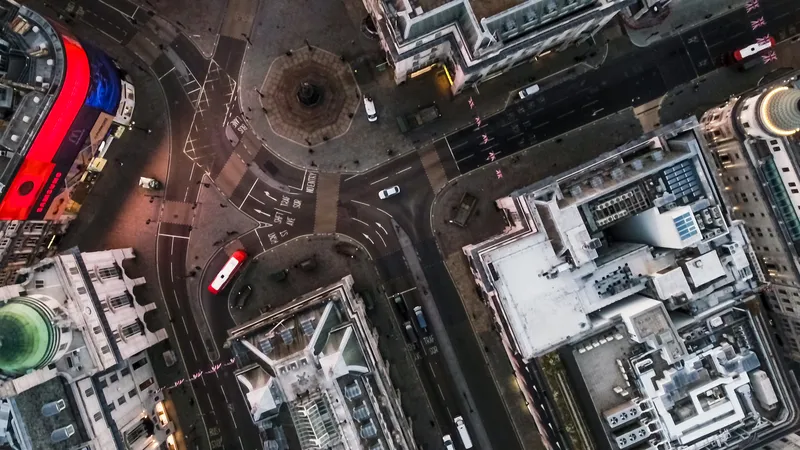An independent quality test by the German State of Bavaria’s Centre for Traffic Management (ZVM) has found that floating car data (FCD) from INRIX is ‘just as good’ as the information from road sensors. The results indicate that the traffic authority can provide enhanced traffic information to citizens without the expense and time-consuming process of maintaining and installing additional road sensors.
ZVM selected Inrix to provide data and insights to reduce congestion across the state and commissioned
October 12, 2015
Read time: 3 mins
An independent quality test by the German State of Bavaria’s Centre for Traffic Management (ZVM) has found that floating car data (FCD) from 163 INRIX is ‘just as good’ as the information from road sensors. The results indicate that the traffic authority can provide enhanced traffic information to citizens without the expense and time-consuming process of maintaining and installing additional road sensors.
ZVM selected Inrix to provide data and insights to reduce congestion across the state and commissioned this performance study as part of its quality management review of the data.
ZVM already uses a large network of road sensors for traffic management and information purposes, but wanted to improve the quality of real-time data provided to drivers, particularly for secondary roads where road sensors are installed at distances of up to 100km, creating blind spots in coverage.
The TraffiCon consultancy evaluated the real-time and historic data on behalf of ZVM; the analysis revealed that Inrix was able to provide accurate real-time traffic information up to 98 per cent of the time on roads such as the A3, A8 and A9, the most congested motorways in Bavaria. The test found that FCD could be used to fill in the ‘blind spots’ between road sensors on secondary roads to enhance traffic information. Drivers in Bavaria can access Inrix traffic data through the BayernInfo website, which also features as both Android and iOS smartphone apps for real-time updates on road conditions.
Access to Inrix XD Traffic, which delivers real-time information on traffic speeds and travel times from five million miles of roads in 42 countries, provides ZVM with an insight into traffic conditions on Bavarian roads at any given time. XD Traffic improves accuracy and offers detailed real-time traffic information for every 100 metres on every major road type and class, resulting in the best insight for transportation agencies and urban planners for improving a city’s road network performance.
TraffiCon CEO, Dr Stefan Krampe, said: “As Inrix’s floating car data was found to be just as accurate as the information derived from road sensors, it is clear that Inrix can deliver high quality, real-time information to transport authorities to help them better monitor and manage traffic. Through partnering with Inrix, ZVM now has a more comprehensive picture of traffic across their road network and is able to provide more accurate updates to drivers.”
Scott Sedlik, general manager EMEA at Inrix, said: “Providing high quality, real-time traffic information through physical infrastructure, such as road sensors, can be costly and doesn’t always provide the broadest coverage and highest accuracy. By using floating car data, ZVM is able to extend its existing investments to reduce congestion and improve journeys for drivers, saving them time, money and frustration.”
ZVM selected Inrix to provide data and insights to reduce congestion across the state and commissioned this performance study as part of its quality management review of the data.
ZVM already uses a large network of road sensors for traffic management and information purposes, but wanted to improve the quality of real-time data provided to drivers, particularly for secondary roads where road sensors are installed at distances of up to 100km, creating blind spots in coverage.
The TraffiCon consultancy evaluated the real-time and historic data on behalf of ZVM; the analysis revealed that Inrix was able to provide accurate real-time traffic information up to 98 per cent of the time on roads such as the A3, A8 and A9, the most congested motorways in Bavaria. The test found that FCD could be used to fill in the ‘blind spots’ between road sensors on secondary roads to enhance traffic information. Drivers in Bavaria can access Inrix traffic data through the BayernInfo website, which also features as both Android and iOS smartphone apps for real-time updates on road conditions.
Access to Inrix XD Traffic, which delivers real-time information on traffic speeds and travel times from five million miles of roads in 42 countries, provides ZVM with an insight into traffic conditions on Bavarian roads at any given time. XD Traffic improves accuracy and offers detailed real-time traffic information for every 100 metres on every major road type and class, resulting in the best insight for transportation agencies and urban planners for improving a city’s road network performance.
TraffiCon CEO, Dr Stefan Krampe, said: “As Inrix’s floating car data was found to be just as accurate as the information derived from road sensors, it is clear that Inrix can deliver high quality, real-time information to transport authorities to help them better monitor and manage traffic. Through partnering with Inrix, ZVM now has a more comprehensive picture of traffic across their road network and is able to provide more accurate updates to drivers.”
Scott Sedlik, general manager EMEA at Inrix, said: “Providing high quality, real-time traffic information through physical infrastructure, such as road sensors, can be costly and doesn’t always provide the broadest coverage and highest accuracy. By using floating car data, ZVM is able to extend its existing investments to reduce congestion and improve journeys for drivers, saving them time, money and frustration.”









